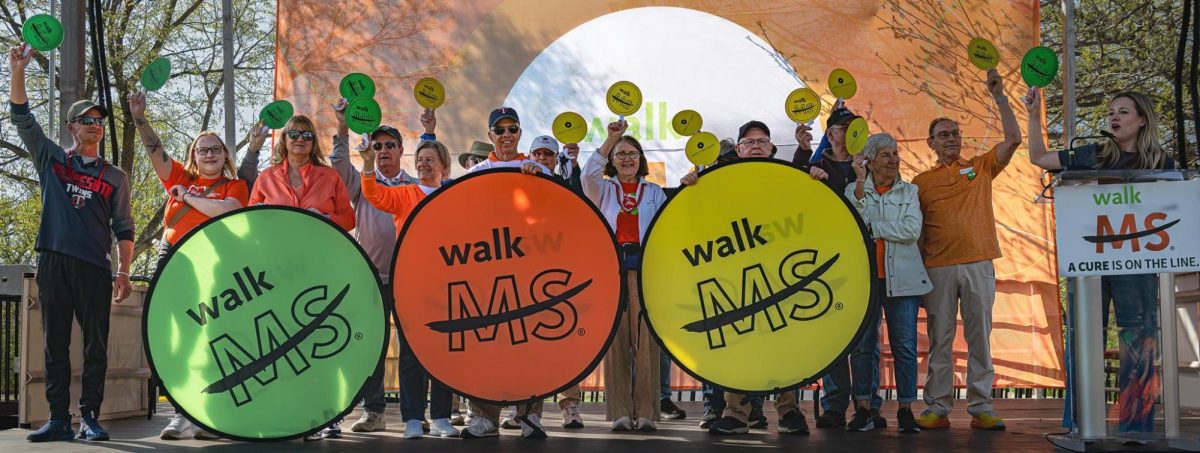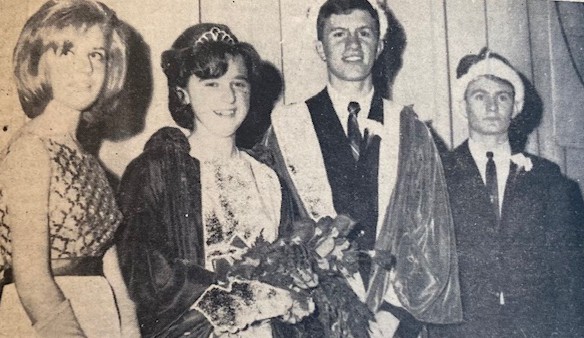Prior Lake resident Bob Miller has vivid recollections of one day back in 2004. It was the 25th wedding anniversary with his wife, Mary. On that day he received confirmation from his neurologist that he had multiple sclerosis.
“It was scary,” he recalls. “My uncle had it and was bedridden for 10 years because there were few treatments available.”
Then age 53, Miller and other family members began searching for answers about how to best treat and live with the disease. He said he was fortunate to find one of the best MS neurologists in the Midwest, and his general mobility was not impacted greatly as so many others face when diagnosed with MS.
He turned to the Twin Cities chapter of the National Multiple Sclerosis Society the following year, which provided him with information on the disease and an opportunity to help with raising money for research, advocacy for more research on the disease and getting support from those who work for the organization.
It was in 2005 that “Bob’s Buddies” was formed and his support group has since walked every year in the annual Twin Cities Walk MS. The fundraiser typically draws thousands in May to Minnehaha Falls Park in Minneapolis. His group has grown over the years from eight walkers to around 30 this year. The tradition has for years included an invitation back to the Miller home following the event for a barbecue picnic.
Miller was this year honored during the May 4 walk for his 20-year dedication to helping others afflicted with MS, and the work he has done on behalf of the organization. He has served on the MS Minnesota Government Relations Advisory Committee, along with the state’s advisory council that addresses prescription drug affordability. Kathleen O’Donnell, Upper Midwest Chapter President, said his volunteer efforts have proven to be invaluable since the median cost for drugs and therapies used to treat MS usually run around $107,000 per year. She refers to Miller as both a champion and a friend who is able to speak with authenticity about the challenges of people living with MS, disabilities and other chronic illnesses.
“If people cannot access their MS medications, they don’t get the help they need,” O’Donnell said. “Bob is family, and Bob treats everyone that way, as well. He is a true ambassador for the National MS Society’s mission, living out our daily conviction that no one should experience MS alone, and the MS Society is here so that no one has to.”
Miller said he has been asked many questions over the years about MS, and best practices for dealing with the disease. He stays active, walks nearly every day, and does his own yard work. He said finding a good MS neurologist is paramount, along with getting the correct prescription medications.
What is challenging, Miller said, is the fact that MS can vary greatly from person to person, and a true diagnosis can only be determined with magnetic resonance imaging (MRI) or a spinal tap. His symptoms started with occasional dizziness and slurred speech, along with a tingling in his cheek.
“Initially, I was scared to death I would be crippled like my uncle,” Miller said. “I feel very fortunate I feel as good as I do with no major issues.”
MS is an autoimmune disease impacting more than a million people which has no specific cause and no known cure. People who live in the upper Midwest and northern states have a greater frequency of receiving a positive diagnosis. Research studies have pointed to the higher concentration of northern European ancestry and people living in those areas being exposed to less sunlight and vitamin D. MS attacks the central nervous system and protective covering of nerve fibers in the brain. Treatments and medication can help manage symptoms and slow the progression of the disease.
“I’m lucky because I have a great family and a great group of friends who have given me so much support over the years,” Miller said. “The key thing is you have to stay positive, and helping others allows me to do that.”


